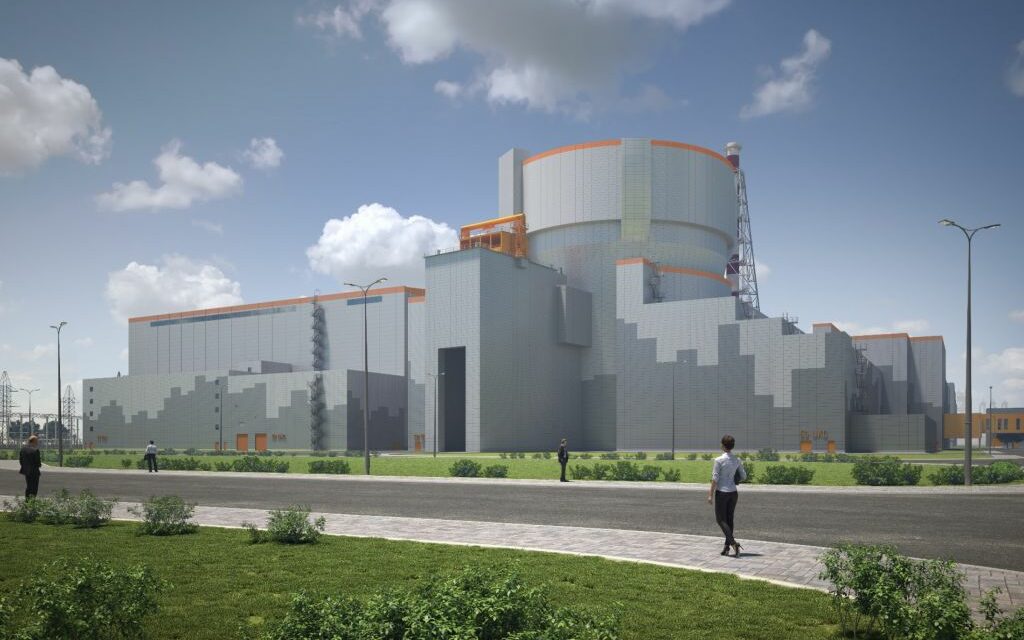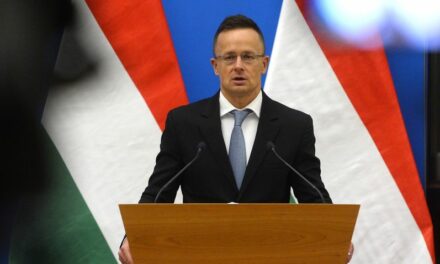It is a great victory for Hungary that the European Court of Justice rejected the Austrian claim and found on Wednesday that the Paks expansion complies with EU rules in all respects, Minister of Foreign Affairs and Trade Péter Szijjártó said in Bucharest.
Responding to a question at a briefing held during the break of the NATO foreign ministers' meeting, the head of the ministry welcomed the fact that the court based in Luxembourg rejected Austria's claim filed in 2018, according to which the European Commission's approval of the Paks investment should be annulled.
He called the verdict a great victory for Hungary in terms of energy security, and emphasized that the European Court of Justice rejected the allegations listed in the "unfounded attack".
"The European Court of Justice ruled that the authorization process fully complied with European Union standards"
he declared.
Péter Szijjártó emphasized that our country carefully ensures that the investment in Paks meets the strictest possible environmental protection and other professional requirements, since safety is obviously the most important issue when building a nuclear power plant.
He also underlined that the judges in Luxembourg also declared that the financing of the nuclear investment fully complies with European rules.
"Both in terms of authorization and financing, the seal of the European Court is on the investment in Paks"
he said.
"So we have managed to prevent one more attack, we have managed to remove one more obstacle," he added.
Finally, the minister also mentioned that although the EU did not impose sanctions in the field of nuclear energy,
"there are institutions, banks, and even countries that want to be more Brussels-like than Brussels and are trying to block construction in Paks in all kinds of illegal ways."
He called on these actors to take into account the current verdict, according to which the investment is legal in all respects, and not to obstruct the project in the future, because it is about the security of Hungary's energy supply and the maintenance of the results of the overhead reduction.
Claim of Austria
Austria sued the commission in 2018, after the EU body approved Hungary's plan in 2017 to build two new reactors in Paks with the help of the Rosatom nuclear power industry concern. In 2015, the EU board launched an investigation to clarify whether the financing of the expansion of the Paks power plant complies with European Union regulations.
During the investigation, Brussels established that the Hungarian financial assistance provided for the construction of the two new nuclear reactors contains state support. The committee finally approved the grant at the beginning of March 2017 based on the EU state aid rules, because it considered that the amount of the grant is proportionate to the set goals and does not exceed the amount necessary to achieve them. Austria challenged this approval in the EU court, arguing that
on the one hand, nuclear energy is not a sustainable energy source, and on the other hand, it does not provide the right answer to climate change.
Among other things, the Vienna management complained that the commission's decision violates public procurement rules, the observance of which is inextricably linked to the purpose of the subsidy, leads to a disproportionate distortion of market competition, and that granting the subsidy does not serve the public interest.
Rejecting the Austrian positions, the EU court pointed out:
EU member states are free to determine the composition of their energy structure, and the committee cannot demand that public funding be allocated to alternative energy sources.
Austria can appeal against the decision of the EU court within two months and ten days of notification. In July, Vienna also filed a complaint with the EU court because the European Parliament classified nuclear and natural gas energy as "green and sustainable" temporary energy sources on the proposal of the European Commission.
MTI
Cover image: Paks II project visual plan/Paks II Zrt.













